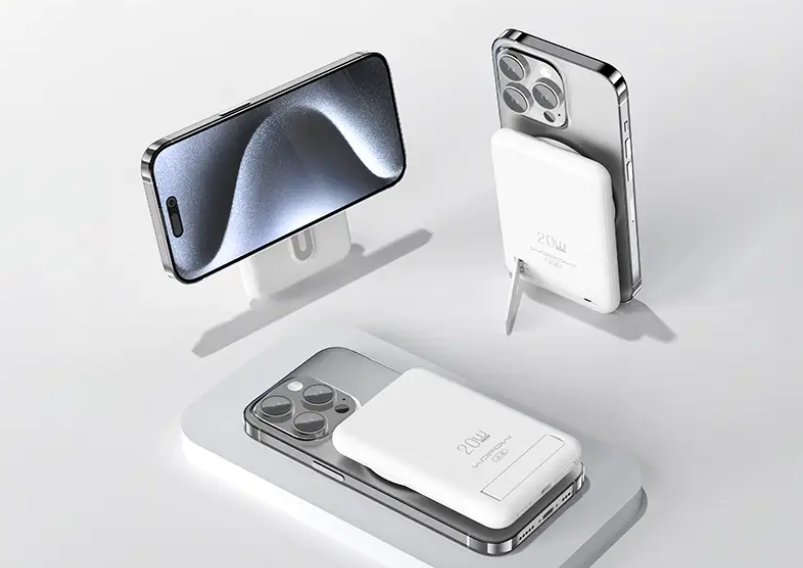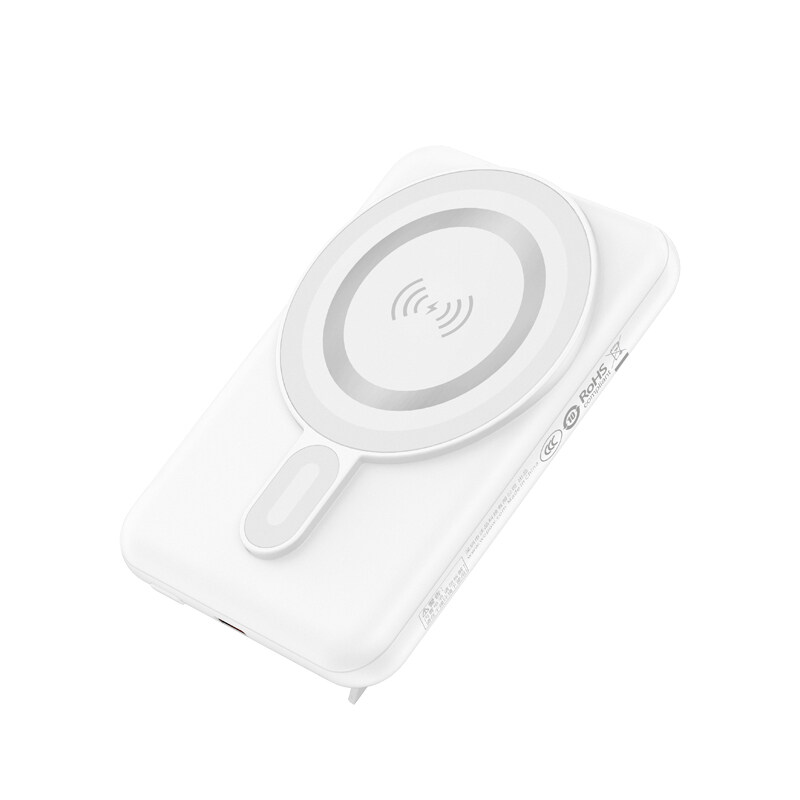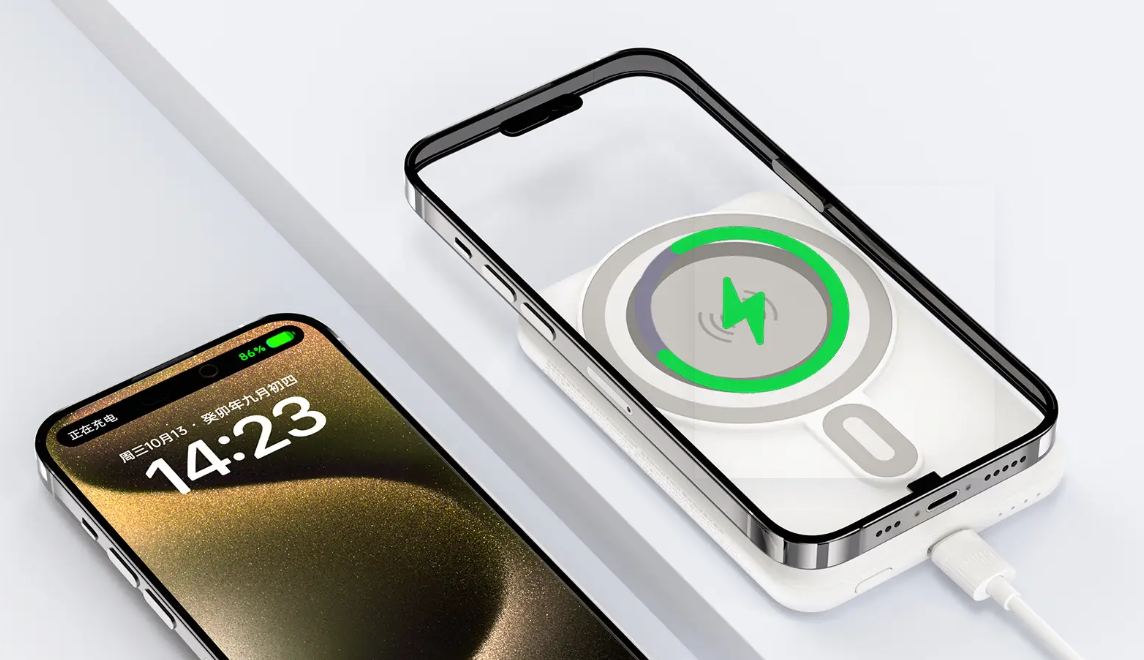Email format error
Email cannot be empty
Email already exists
6-20 characters(letters plus numbers only)
The password is inconsistent
Email format error
Email cannot be empty
Email does not exist
6-20 characters(letters plus numbers only)
The password is inconsistent


Imagine you’re on the go—rushing between meetings, traveling for work, or exploring a new city—and suddenly your phone battery drops below 10%. There’s no wall socket around, and your charging cable is tangled at the bottom of your bag. In that moment, having a wireless fast charging power bank could be a lifesaver. It gives you the freedom to charge anywhere, anytime, without being tethered to cables or outlets.
In this guide, we’ll walk you through everything you need to know about wireless fast charging power banks—what they are, what features to look for, and how to choose the right one for your needs. If you’ve been considering going wireless, this article will help you make an informed choice.
A wireless fast charging power bank is a portable battery pack that lets you charge your devices wirelessly using electromagnetic induction, usually following the Qi charging standard. Unlike traditional wired power banks, you simply place your phone or device on the charging pad, and it starts powering up—no cable needed.
Many of today’s models also support fast charging, delivering higher wattage (such as 10W, 15W, or even 20W) to charge your phone much quicker than older models. Some advanced power banks combine wireless charging and wired outputs, giving you multiple ways to keep your gadgets powered.

When shopping for a wireless fast charging power bank, don’t just grab the first sleek-looking one you see. There are several technical aspects you should pay attention to:
Charging speed: Look for at least 10W wireless output, and ideally 15W or higher if your phone supports it. For wired fast charging, check for PD (Power Delivery) or QC (Quick Charge) compatibility.
Battery capacity: Choose a capacity that fits your lifestyle. 10,000 mAh is good for daily use, while 20,000 mAh or more is better for travel or power users.
Simultaneous charging: The best models support charging multiple devices at once—wirelessly and through cables—so you can top up your phone and earbuds simultaneously.
Safety protections: Ensure the power bank has overcharge, short-circuit, and temperature protection features to prevent overheating.
Portability: Consider weight and size, especially if you’ll be carrying it every day or traveling frequently.
Choosing a reliable wireless fast charging power bank that checks all these boxes can save you valuable time and keep your devices ready whenever you need them.
Switching to a wireless fast charging power bank brings several practical benefits over traditional models:
No more cables: Just place your phone on the charging pad, and you’re good to go. Perfect for quick charges on the move.
Less wear on ports: Reduces the stress and damage caused by constantly plugging and unplugging charging cables.
Multi-device compatibility: Works with smartphones, wireless earbuds, and even smartwatches that support Qi wireless charging.
Convenient anywhere: Whether you’re commuting, in a café, or at the airport, charging becomes effortless.
Once you’ve experienced the convenience of wireless charging, it’s hard to go back to tangled cables and searching for wall outlets.
Before you decide, it’s helpful to compare wireless and wired power banks side by side:
| Feature | Wireless Fast Charging Power Bank | Traditional Wired Power Bank |
| Charging method | Contact-based, cable-free | Requires charging cable |
| Charging speed | Fast (10–20W, depending on model) | Often faster (up to 30W+ wired) |
| Port usage | No wear on phone ports | Frequent plug/unplug can cause wear |
| Convenience | Very high | Medium |
| Supports multiple devices | Yes (wireless + wired) | Yes (wired only) |
| Portability | Very portable | Usually portable |
If you prioritize convenience and minimal setup, go for a wireless fast charging power bank. If raw charging speed is your top concern, a wired-only model might still be faster—but less flexible.
If you plan to bring your power bank while traveling, especially on flights, keep these tips in mind:
Check airline restrictions: Most airlines allow power banks under 100Wh (about 27,000 mAh). Carry them in your hand luggage, not checked baggage.
Fully charge before you leave: Make sure your power bank is at 100% before starting your journey.
Protect from heat and moisture: Store it in a dry, cool place to maintain battery health.
Bring a cable just in case: Even though you’ll mainly use wireless charging, having a backup cable can save you if your phone needs a faster boost.

If you’re ready to upgrade, consider Wopow’s wireless fast charging power bank. As an experienced power bank manufacturer and supplier, Wopow combines innovative wireless charging technology with reliable safety protections. Their models support fast wireless output, high-capacity batteries, and sleek, portable designs that make them ideal for travel and everyday use.
Instead of guessing which brand to trust, you can choose a product built by a company that specializes in portable power solutions. Wopow also supports OEM and ODM customization, making their power banks a smart choice for both personal use and bulk purchasing.
Want to know more about Wopow’s models or explore customization options? Contact us here to get product details and quotations.